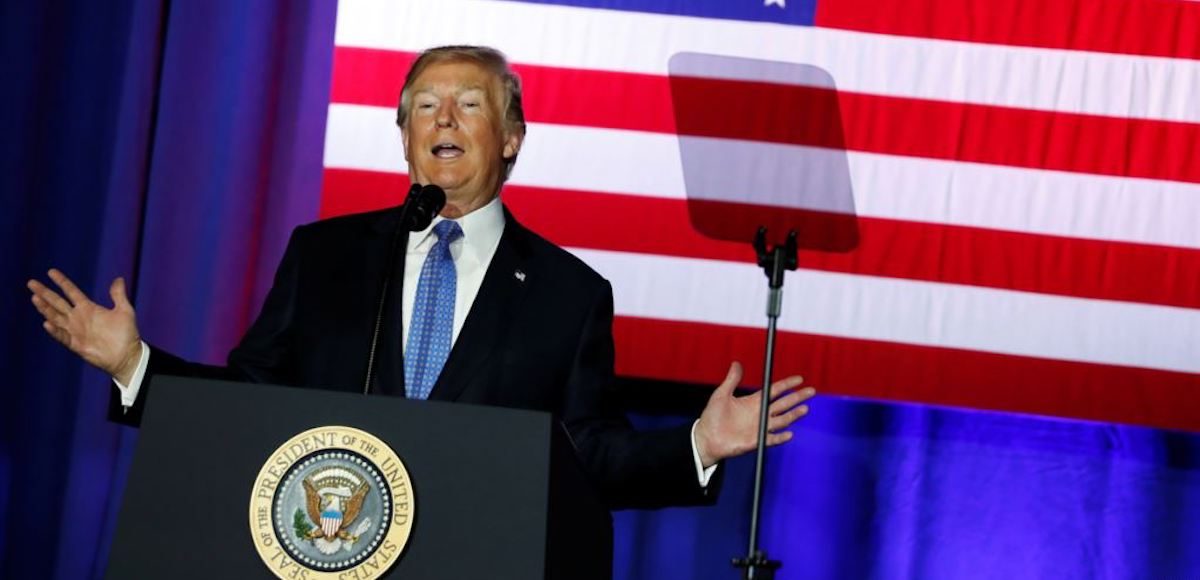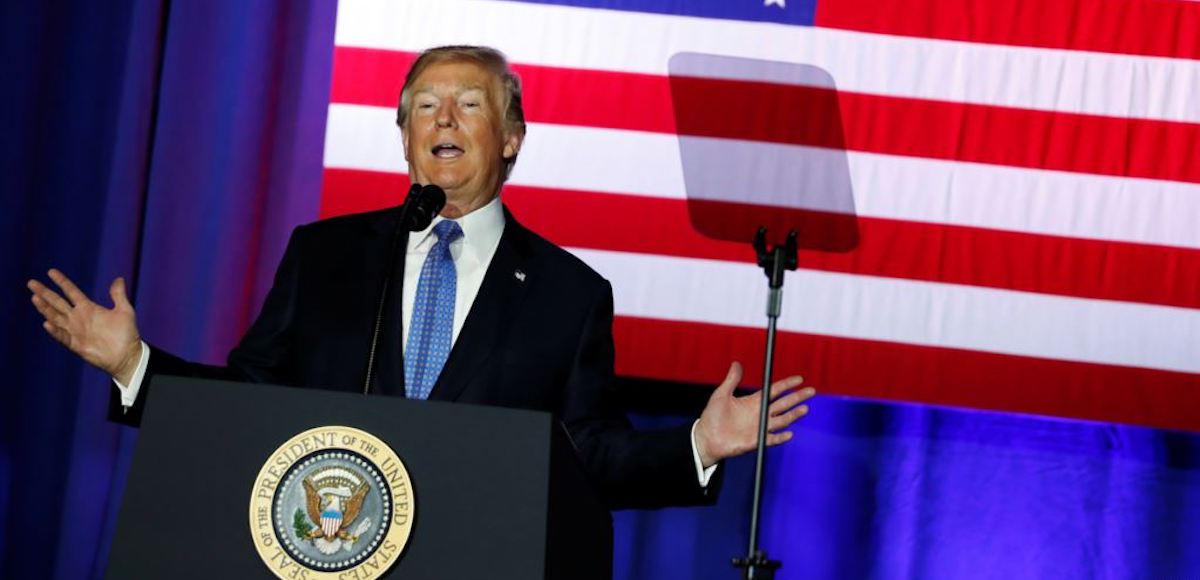

President Donald J. Trump delivers remarks on tax reform at the state fairgrounds in Indianapolis, Indiana, on Wednesday September 27, 2017. (Photo: Reuters)
President Donald Trump on Wednesday in Indiana pushed Republicans’ newly unveiled tax reform plan, vowing drastic cuts to the middle class. The President said the plan will fuel “America’s economic comeback.”
“These tax cuts are significant,” he said during a speech at the Farm Bureau Building in Indianapolis. “There’s never been tax cuts like we’re talking about.”
His visit to the Hoosier State came as Republicans earlier on Wednesday released the framework of their plan that was agreed upon by lawmakers in the U.S. House and Senate in coordination with members of the Trump Administration. President Trump in his speech in Indiana turned up the heat on legislators–particularly Democrats.
“If Senator Donnelly doesn’t approve the plan, we will come here,” he said. “We will campaign against him like you wouldn’t believe.”
He told the American people they need to engage in the debate and push lawmakers to “do the right thing.”
“Call your congressman. Call your senators,” Trump said. “Let them know you’re watching, let them know you’re waiting. Tell them that today is the day for decision. That now is the time to heal this self-inflicted economic wound.”
“If you demand it, the politicians will listen.”
Individuals & Families
The Republican tax reform plan nearly doubles the standard deduction to $12,000 for individuals and $24,000 for families. It basically would increase the amount of personal income that is tax-free, giving working Americans a significant tax cut. Individual tax rates would be reduced and simplified to 12%, 25% and 35%.
The plan also recommends a surcharge for the very wealthy.
“Today, we move one step closer to fixing our broken tax code so that it puts Americans first,” House Speaker Paul Ryan, R-Wis., said in a statement. “This is our best opportunity in a generation to deliver real middle-class tax relief, create jobs here at home, and fuel unprecedented economic growth.”
While deductions for mortgage interest and charitable giving would not be touched, the plan aims to end most other itemized deductions that can reduce how much affluent families pay. It provides more help to families by increasing the child tax credit, which is currently $1,000 per child, and allowing families with higher incomes to qualify.
“It has been 31 years since we last got this done, and hardworking families and small businesses cannot afford to wait any longer,” Speaker Ryan added. “Under President Trump’s leadership, we are determined to finally give the American people the simpler, fairer, and more competitive tax system they deserve.”
Also proposed is a new tax credit of $500 to help pay for the care of the elderly and the sick who are claimed as dependents by the taxpayer.
Small Businesses
More than 70% of the jobs created in the United States (US) are due to small businesses. Under the plan, they would get a 25% tax rate with unspecified rules aimed at preventing wealthy owners from classifying wage income as business income.
Corporations
The top corporate tax rate would be slashed from 35%, which is among the highest in the developed world, down to 20%. New benefits would be given to firms in which the profits double as the owners’ personal income. They would pay at a 25% rate, down from 39.6%.
The framework of a plan would also establish a one-time tax on foreign earnings currently held overseas by U.S. multinational corporations (MNC). The provision is a mixture of a repatriation holiday and forced repatriation.
The U.S. would adopt a “territorial system” in which the government would abandon futile and economically harmful attempts to tax companies’ earnings overseas. It also suggests a minimum corporate tax aimed to ensure that companies operating in tax haven countries are not able to engaged in tax avoidance.







